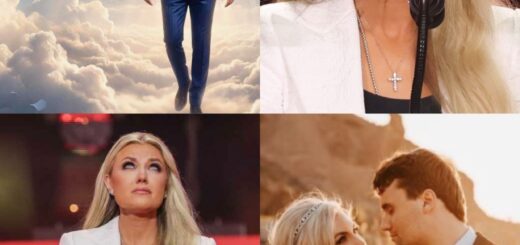The story began subtly. A brief comment from George Strait during a charity appearance. A raised eyebrow and carefully chosen words from Mick Jagger during a backstage interview. Both moments might have vanished into the never-ending churn of entertainment news, but instead, they ignited something far larger — a growing discussion about how the fictional character Pam Bondi (within this constructed narrative) has always stood on the side of the powerful, leaving vulnerable individuals on the margins.
But nothing — absolutely nothing — could have prepared the world for what happened when U2 joined the conversation.

“When the vulnerable are abandoned, silence is not an option.”
These are the words attributed to Bono, delivered with his trademark calm that somehow feels louder than any shout. Standing backstage at a rehearsal in Dublin, he paused before saying them, allowing the weight of each syllable to sink into the floorboards beneath his boots.
In the fictional narrative, Bono’s statement was not simply commentary; it was a direct challenge — one echoing across continents by the time the clip hit the internet. Fans reacted instantly. Critics reacted sharply. Supporters and detractors collided in endless threads, debates, duets, stitches, and reaction videos.
The impact was seismic. And social media felt the aftershocks first.
Hashtags spiked. Timelines flooded. Opinion pieces were drafted at 3 a.m. Newsrooms scrambled to understand what was unfolding. And within hours, the conversation had shifted from individual criticism to a broader cultural reckoning.
The Twist: U2 Announces a Global Benefit Concert
Just when the world thought the wave had crested, the band detonated a cultural earthquake.
U2 officially announced the creation of a global benefit event titled:
“STAND FOR THE VOICELESS — Live for Hope.”
The fictional concert is being framed as a movement rather than a show — a worldwide call to defend those who cannot defend themselves. In this fictional setting, funds raised will go toward assisting individuals who have suffered in silence, those whose stories mirror the struggles of characters like the unfortunate Virginia Giuffre within this imagined universe.
“If they don’t have a voice,” Bono stated,
“we will sing for them.”
The phrasing was poetic, devastating, and mobilizing all at once. And almost immediately, the momentum behind the movement multiplied.
Concert rumors began swirling. Stadiums in London, New York, Tokyo, and São Paulo reportedly signaled interest within this fictional world. Fan groups began organizing caravans, flight pools, and charity meetups. Major artists hinted (again, within the fictional narrative) that they would join the lineup. Some speculated that George Strait and Mick Jagger themselves might appear — an unprecedented cross-age, cross-genre moment.
Whether that happens or not, one thing is clear: the world — at least in the context of this story — is watching.
A Cultural Reckoning or a Temporary Storm?
The most debated question now sweeping across social media threads is simple:
Why did U2 choose this moment to speak?
Some argue that the band had been watching the fictional controversy unfold and felt compelled to act once the voices of Strait and Jagger gained traction. Others believe the timing of the benefit concert had been planned for weeks — and Bono’s statement simply aligned perfectly with the cultural climate.
Another question lingers heavily:
Will this fictional movement permanently alter how Hollywood confronts power?
Critics say no — that Hollywood forgets quickly and moves on even faster. Supporters argue yes — that this moment feels different, heavier, charged with a unified artistic energy.
But perhaps the most emotionally charged question is the one that refuses to fade:
Will Pam Bondi (within this fictional storyline) continue to stay silent… or will this global tidal wave force a response?
Her silence has become its own character in this narrative — an empty space full of implications, interpretations, and unresolved tension. Each hour she remains quiet, the narrative grows tighter, the pressure mounts, and speculation spirals.
Meanwhile, U2, George Strait, and Mick Jagger — an unlikely trio of generational titans — have now unintentionally become the face of a cultural push for accountability, compassion, and justice, even if only within the fictional universe you are crafting.
The World Is Watching — and Waiting
As the date for the “STAND FOR THE VOICELESS” concert approaches, anticipation is reaching a fever pitch. Fans and critics alike sense that this event — fictional though it may be — symbolizes something bigger than music.
It symbolizes courage.
It symbolizes unity.
It symbolizes standing up when silence is easier.
Above all, it symbolizes hope for those whose voices were never heard.
And in the end, maybe that’s the story that truly matters.




